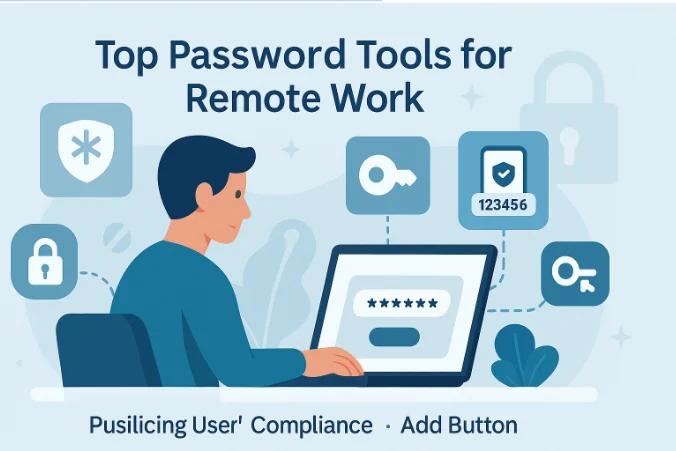The Benefits of Managed Cloud Security for Small and Mid-Sized Businesses

Cloud computing has transformed how businesses store data, manage operations, and communicate with customers. While the cloud provides convenience and scalability, it also introduces security risks that small and mid-sized businesses must address. Cyber threats, data breaches, and compliance challenges require businesses to take security seriously.
For many companies, handling cloud security internally is difficult due to limited resources and expertise. Managed cloud security can help. By outsourcing security management to professionals, businesses can protect their cloud environments without the burden of handling security tasks in-house.
This article explains how managed cloud security services benefit small and mid-sized businesses. They ensure strong protection against cyber threats while maintaining efficiency and compliance.
Why Cloud Security Matters for Small and Mid-Sized Businesses
Increasing Cybersecurity Threats
Cybercriminals target businesses of all sizes. Small and mid-sized companies are often at higher risk because they may lack advanced security tools. Hackers exploit weaknesses in cloud configurations, phishing scams, and unsecured remote access points.
Cloud security managed services provide businesses with continuous monitoring, threat detection, and risk mitigation strategies to prevent security incidents.
Regulatory Compliance Requirements
Industries such as healthcare, finance, and retail must follow strict data security regulations. Failure to comply with industry standards can result in legal consequences and financial penalties.
Managed cloud security ensures that businesses meet compliance requirements by enforcing security policies, encrypting sensitive data, and conducting regular audits.
Limited IT Resources
Many small and mid-sized businesses do not have dedicated IT security teams. Managing cloud security requires specialized skills, which can be expensive to maintain in-house.
Outsourcing security tasks to managed cloud security services allows businesses to focus on growth while security experts handle protection.
Key Benefits of Managed Cloud Security for Businesses
24/7 Threat Monitoring and Response
Cyberattacks can happen at any time. Without constant monitoring, businesses may not detect a security breach until it is too late. Managed cloud security provides around-the-clock surveillance to identify and respond to threats before they cause damage.
Security teams use advanced tools to detect unusual activity, unauthorized access attempts, and malware infections. If a threat is found, immediate action is taken to contain it and prevent further risks.
Data Encryption and Access Control
Unauthorized access to cloud data can lead to financial losses and reputational damage. Strong access control measures protect sensitive information from cybercriminals and insider threats.
With cloud security managed services, businesses can implement multi-factor authentication, encryption, and role-based access control. These measures ensure that only authorized users can access specific data.
Automated Security Updates and Patch Management
Outdated software and unpatched vulnerabilities create security risks. Cybercriminals exploit outdated cloud applications to launch attacks.
Managed cloud security services automatically apply security patches and updates, reducing the risk of breaches caused by outdated systems.
Disaster Recovery and Backup Solutions
Data loss can result from cyberattacks, hardware failures, or accidental deletions. Businesses must have a recovery plan in place to restore operations quickly.
With managed cloud security, businesses receive automated backup solutions that securely store data in multiple locations. In the event of a disaster, critical files can be restored with minimal downtime.
Scalability and Cost Savings
Hiring in-house security professionals is expensive. Small and mid-sized businesses often cannot afford dedicated cybersecurity teams.
Cloud security managed services provide lower-cost access to enterprise-level security tools. Businesses pay only for the security services they need, allowing them to scale protection as they grow.
How Managed Cloud Security Enhances Business Operations
Protecting Remote Work Environments
Remote work has increased security challenges for businesses. Employees access cloud applications from various devices and locations, making it difficult to secure company data.
With managed cloud security services, businesses can enforce security policies across all devices and ensure that remote employees can access cloud applications securely.
Reducing IT Team Workload
Small IT teams already handle multiple responsibilities. Adding cloud security management to their workload can lead to overlooked vulnerabilities.
By outsourcing security tasks, businesses allow their IT teams to focus on other priorities while security professionals handle risk assessments, monitoring, and incident response.
Preventing Downtime and Financial Losses
Cyberattacks, data breaches, and ransomware attacks can cause system outages. When business operations are disrupted, companies lose revenue and customer trust.
Managed cloud security minimizes downtime by preventing security incidents before they escalate. This ensures that business operations continue without major interruptions.
Choosing the Right Managed Cloud Security Provider
Key Features to Look For
When selecting a security provider, businesses should consider:
- 24/7 threat monitoring and response capabilities.
- Encryption and access control features.
- Compliance support for industry regulations.
- Automated patch management and security updates.
- Scalable security solutions that grow with the business.
Customizing Security Services
Each business has different security needs. A managed cloud security provider should offer customized solutions based on company size, industry regulations, and risk levels.
For example, businesses handling financial transactions may require advanced fraud detection, while healthcare organizations may need enhanced encryption for patient records.
Final Thoughts on Managed Cloud Security for Businesses
Small and mid-sized businesses face significant cybersecurity challenges. Protecting sensitive data, preventing breaches, and ensuring compliance require expert security solutions. Managed cloud security provides an effective way for businesses to safeguard their cloud environments without hiring in-house security teams.
Companies receive 24/7 monitoring, automated security updates, data encryption, and access control measures with managed cloud security services. These solutions reduce security risks, improve compliance, and minimize the chances of costly cyberattacks.
By choosing cloud security managed services, businesses can focus on growth while ensuring that their digital assets remain protected. Investing in cloud security is not just about preventing threats—it also supports business continuity and long-term success.
Recent Posts
- Looking for a Signature Scent at Home? Start with These Candles
- A Practical Approach to Backyard Improvement That Lasts
- Why Digital Infrastructure Resilience Defines Enterprise Success Today
- Top Password Tools for Remote Workers to Stay Secure in 2025
- Navigating USPS Mailing Issues and Savings: What to Know About Insufficient Addresses and Bulk Rate Postage Rates
Recent Comments

Looking for a Signature Scent at Home? Start with These Candles

Why Digital Infrastructure Resilience Defines Enterprise Success Today

Top Password Tools for Remote Workers to Stay Secure in 2025

Why Electricians Recommend Upgrading Old Switches and Lights Today

Looking for a Signature Scent at Home? Start with These Candles

A Practical Approach to Backyard Improvement That Lasts

Why Digital Infrastructure Resilience Defines Enterprise Success Today
